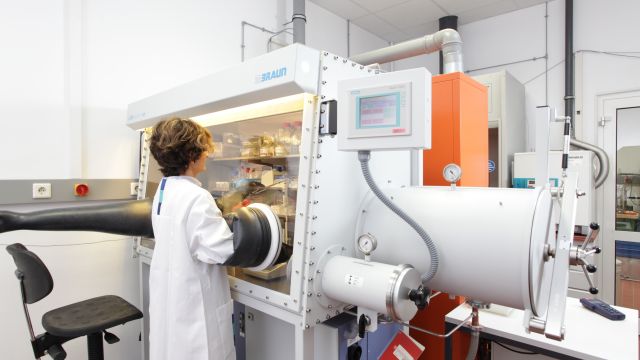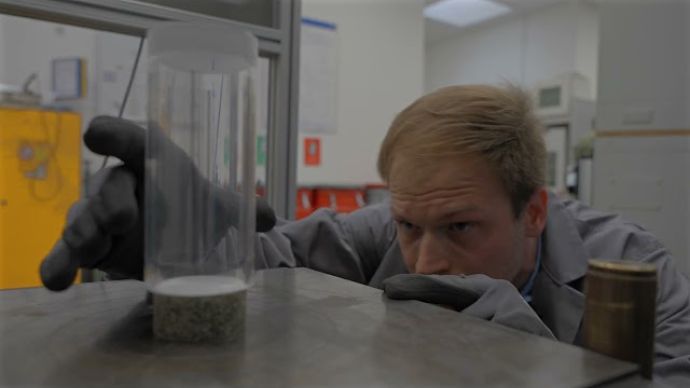
The Geoscientific Laboratory
Reasearch topics
The Geoscientific Lab deals with various tasks about environmental research and repository safety research. The research and development works comprise of, amongst others, the investigation of geological rock formations as well as radioactive and hazardous chemical wastes. Questions include, for example: Which properties must be provided by the respective rock formation to be suitable for waste disposal? What are the advantages and disadvantages of final waste disposal in salt rock, clay or granite?
The researchers are not only interested in the rock formations, the so-called ‘host rocks’, and the waste itself, but also in the mobilization and release behavior of contaminants, the overall properties of the above-lying rock strata, the effects of technical barriers and, in addition, their interactions with each other.
GRS’s Geoscientific Laboratory applies the following methods when carrying out experiments and analyses relating to these issues:
- Geochemical investigations are dedicated to the properties, behaviour and interaction of the different host rock types, the overlaying rock strata, waste, technical barriers and any possible inflowing saline water. The host rocks: salt rock, clay and granite are, for example, due to their geological history composed differently and therefore, have different properties.
- Geotechnical investigations allows as an example the investigation of the permeability of a rock with regards to gases and water or the technical barrier under the influence of heat or pressure. This, in turn, allows for example the simulation of natural conditions or the special conditions of a repository.
- The extraction, preparation and transport of samples, for example of saline solution from a salt mine, need a lot of expertise and state-of-the-art equipment. This is due to the fact that the results will only be considered both credible and valid if the samples have been extracted properly and during the transportation to the analysis in the laboratory remain unchanged.
Depending on the specific questions and research methods, the researchers perform their investigations for example in the laboratory itself, a technical center (for larger investigations for example, on boulders or slabs of rock) or in situ i.e. at a mine or in an underground research laboratory.
Accreditation of the laboratory
In 2013, the German Accreditation Body (DAkkS) granted the Geosciences Laboratory of GRS in Braunschweig accreditation as a testing laboratory for "Sampling and selected chemical investigations of aqueous saline solutions". The following procedures were accredited:
- Sampling of aqueous salt solutions (so-called saline solutions)
- Determination of the content of chloride and bromide in these solutions by means of potentiometric titration
- Determination of major and minor elements in aqueous saline solutions by means of inductively coupled plasma-atomic emission spectrometry (ICP-OES)

Akkreditierung des Labors
Im Jahr 2013 hat die Deutsche Akkreditierungsstelle (DAkkS) dem Geowissenschaftlichen Labor der GRS in Braunschweig die Akkreditierung als Prüflabor für „Probenahme und ausgewählte chemische Untersuchungen von wässrigen salinaren Lösungen“ erteilt. Dabei wurden folgende Verfahren akkreditiert:
- Probenahme von wässrigen Salzlösungen (sog. salinaren Lösungen)
- Bestimmung des Gehaltes von Chlorid und Bromid in diesen Lösungen mittels potentiometrischer Titration
- Bestimmung von Haupt- und Nebenelementen in wässrigen salinaren Lösungen mittels induktiv gekoppelter Plasma-Atom-Emissionsspektrometrie (ICP-OES).
